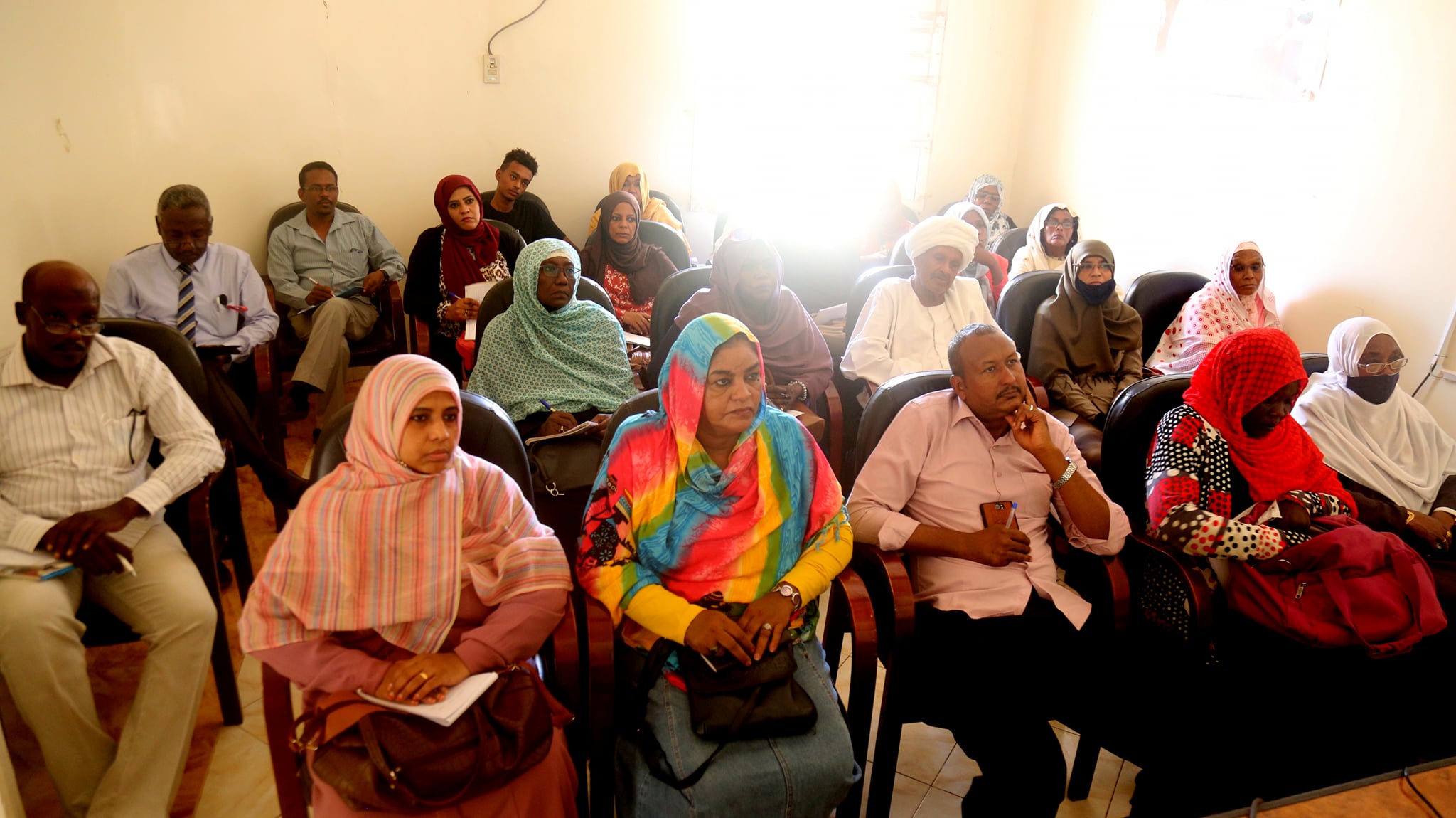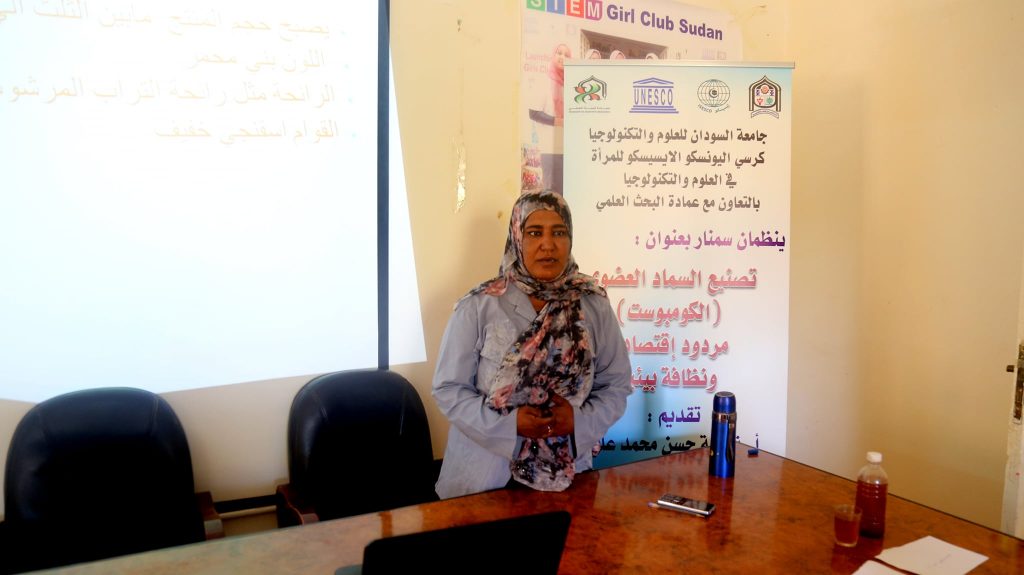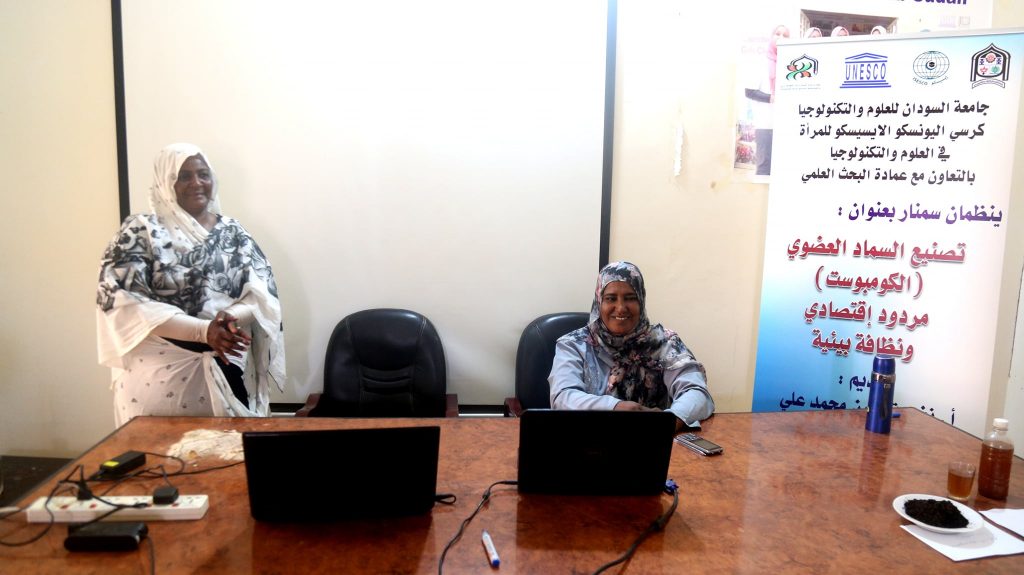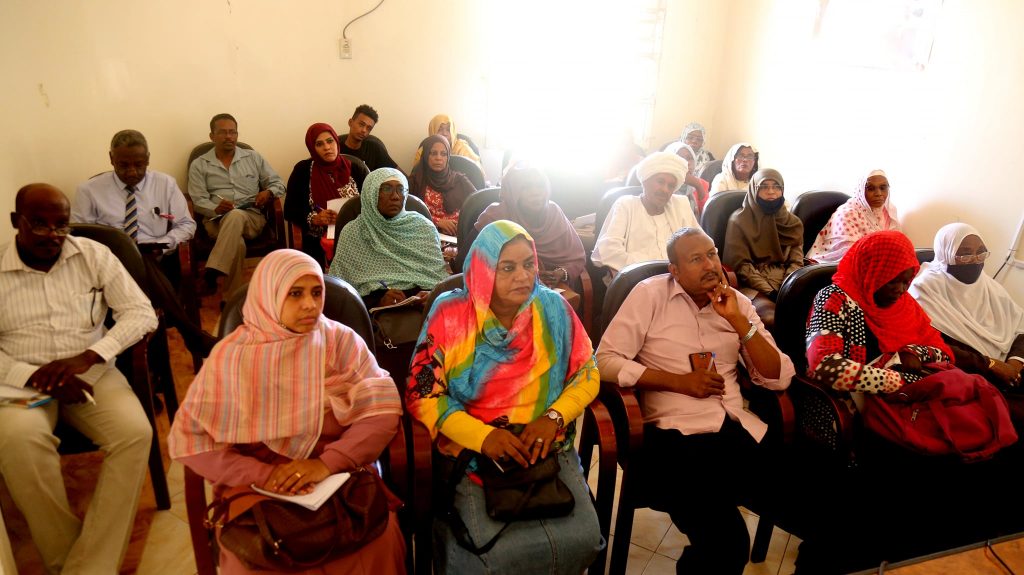The UNESCO Chair for Women in Science and Technology, in collaboration with the Deanship of Scientific Research at Sudan University of Science and Technology, organized a scientific seminar entitled
"Compost as an Economic Resource and Environmental Hygiene",
which comes within the framework of implementing the outputs of the National Economic Conference Recommendations. The seminar presenter is Prof. Nafisa Hassan Mohammed Ali, an agricultural expert at the Federal Ministry of Agriculture.
Prof. Amal M. Ibrahim, UNESCO Chairholder, and explained that the seminar comes in the light of the identification of mechanisms to support the national economy, which contribute to the resolution of many issues through scientific research. She also emphasized on the great role of scientists, in taking advantage of simple solutions that may yield high economic value in times of crisis. For example, treating soil with organic fertilizers (compost), which helps crops and plants to grow better and gives them optimal nutritional value.
Prof. Nafisa Hassan Mohammed Ali, the seminar presenter, stressed that waste-recycling represents a national wealth and a strategy, through which accumulated waste is disposed of in the best way after collecting, sorting and converting it into organic and industrial components. She explained that animal and plant waste is accumulating in the majority of all states of Sudan, and is not exploited properly.
The seminar has focused on compost, as the result of the degradation of organic matter by microorganisms under environmental conditions controlled by several factors. It is forbidden to use meat, oils, milk derivatives and disease-carrying plants. Compost production methods are divided into aerobic, anaerobic, traditional, and the matrix method, and characterized by the fast hot method as the best way to make (compost). Also, Prof. Nafisa H. M. Ali added that the goal of the orientation is to use organic fertilizers for agriculture using technical packages to reduce the use of chemical fertilizers.
The seminar came up with several recommendations, most notably on raising the awareness of families to allocate specific areas for waste in homes, educating farmers about the harms of soil and industrial fertilizers and the importance of using organic fertilizers, encouraging the state in an integrated way to use organic fertilizers, intensifying and expanding the work through training courses, activating the role of agricultural extension and plant protection, taking advantage of all animal and plant wastes and turning them into organic fertilizer by scientific methods, utilizing organic fertilizer as a value and an investment economic resource, the ease of working compost in the house to be used in fertilizing the soil for home planting, contributing to hygiene and raising soil fertility and properties for a long time.




